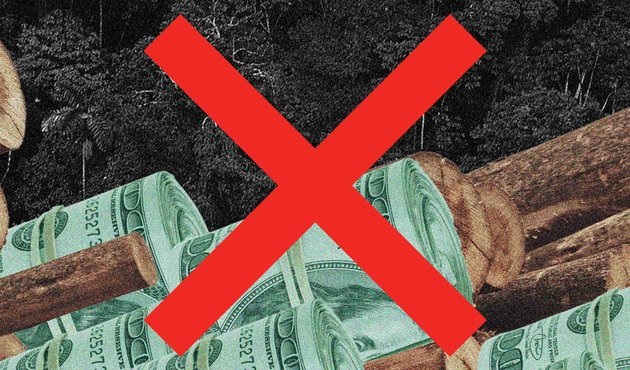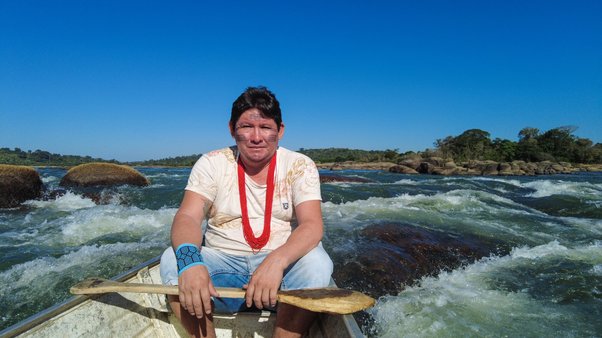The Brazilian Presidency’s flagship conservation finance initiative for COP30 – the Tropical Forest Forever Facility (TFFF) – must be supported by sponsor governments also introducing stronger rules to close loopholes that allow the financing of deforestation, Global Witness has warned
The Government of Brazil today released its latest plans for the $125 billion initiative, which aims to raise capital from public and private sources, invest it in global markets, and direct a portion of profits to tropical forest countries as an incentive to keep forests standing, with a share earmarked for Indigenous Peoples and local communities.
While the TFFF is designed in part to address gaps in global finance for forests, Global Witness says its potential impact will be undermined if governments continue to allow trillions from banks and investors to flow into activities that drive deforestation.
Progress, but key gaps remain
The third TFFF concept note takes important steps forward, recognising the leadership and rights of Indigenous Peoples and local communities (IP&LCs). Crucially, it proposes direct access to finance for IP&LCs and new enforcement rules that would cut off countries failing to pass funds onto these communities. It also rules out investments in deforestation and other major climate polluters such as coal, peat, oil, and gas – a demand strongly supported by Global Witness and civil society.
But ambition still falls short. Concerningly, the fund currently commits a minimum of just 20% of payments to IPLCs, despite their indispensable role in protecting forests. Additionally, while the TFFF has made strides in announcing a deforestation-free investment strategy, it cannot alone enforce binding rules on banks or investors more widely, who continue to play an outsized role in funding global deforestation.
The real accountability now lies with the national governments backing the fund: without strong laws to stop financial actors funnelling trillions into businesses responsible for forest destruction, Global Witness says world leaders are likely to miss their 2030 goal to halt and reverse deforestation.
Global Witness Senior Policy Advisor Ashley Thomson said:
“This fund could be a lifeline for forest conservation, but forests aren’t just at risk from neglect. They’re being destroyed by banks and investors financing deforestation. National governments must act now with binding rules, or it’s like bailing out a sinking ship without fixing the hole.
“We welcome the TFFF’s commitment to deforestation-free investments and now urge the fund to adopt strong safeguards to deliver this promise. Forest protection cannot be paid for with the profits of its own destruction. That should go without saying.”
A crisis the world can’t afford
Deforestation – responsible for about 11% of global greenhouse gas emissions – is expected to be a key issue at COP30, hosted later this year in the Amazon state of Belém, Brazil.
Tropical primary forest loss surged in 2024, with trees vanishing at the rate of 18 football fields per minute, nearly double the 2023 rate – threatening to push the Amazon towards an irreversible "dieback" tipping point.
Recent Global Witness investigations have shown the staggering role of global finance in driving this destruction:
- $1.7 billion from JP Morgan, Bank of America, HSBC, Santander and BBVA to companies destroying linked to the destruction of Paraguay’s Gran Chaco forest (2021–2023).
- £1bn+from UK banks into "forest-risk" companies since COP26, with British investors holding £1.4 billion in such firms as of July 2024
- $1.7 billion in earnings by Barclays from financing Brazilian meat giant JBS, a meatpacking company linked to illegal Amazon deforestation, Indigenous land grabs and human rights abuses
- $23 billion from Chinese banks to forest-risk companies (2018-2024), making them the largest creditors after Brazil and Indonesia
The latest Forest 500 report by Global Canopy finds that 150 financial institutions poured a staggering USD$8.9 trillion into the deforestation economy in 2024 alone.
Global Witness is urging TFFF sponsor governments – particularly wealthy nations whose financial centres channel billions into deforestation, such as the US, UK, China and EU – to introduce binding laws requiring all banks, asset managers, and investors to carry out checks to prevent deforestation businesses accessing the financial system.
Global Witness also urge the TFFF to amend its design to maximise payments to IPLCs beyond the currently planned 20% share of profits, and grant them central decision-making power in the fund’s operations.
Thomson added:
“We welcome every serious effort to keep forests standing.
“But unless governments pair their investments in the TFFF with strong laws to cut off the cash fuelling deforestation, the fund risks protecting banks’ reputations more than it protects forests.”



